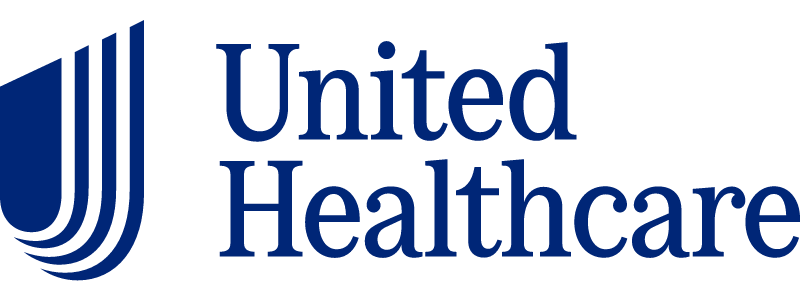Table of Contents
What Is Adolescent PHP?
Partial Hospitalization Programs (PHPs) are structured mental health treatment protocols designed to offer intensive therapeutic services. While similar to inpatient care, PHPs allow individuals to return home at the end of the day, blending rigorous treatment with the normalcy of everyday life. Adolescent PHPs specifically cater to teenagers, addressing the unique psychological, emotional, and developmental needs of this age group.
The adolescent years are a critical period of emotional, social, and psychological development. During this time, teenagers experience rapid changes that can sometimes lead to mental health challenges. Stressors such as academic pressures, social dynamics, identity issues, and family conflicts can become overwhelming.
For some adolescents, these challenges escalate into more serious mental health conditions that require professional intervention. This is where Adolescent PHPs step in, providing an evidence-based [1] [2] bridge between outpatient therapy and inpatient hospitalization.
An Adolescent PHP typically operates during daytime hours, five to seven days a week, offering a comprehensive array of services. These services may include:
- Individual therapy
- Group therapy
- Family therapy
- Educational support
- Medication management
The program’s structure is designed to address various aspects of a teenager’s life, focusing on:
- Emotional regulation
- Behavioral strategies
- Coping mechanisms
- Social skills
The primary goal of an Adolescent PHP is to stabilize the young person’s mental health condition in a less restrictive environment than a hospital. By doing so, it enables adolescents to continue living at home and, in some cases, maintain their academic commitments. The supportive, structured setting of a PHP helps adolescents learn how to manage their mental health effectively, equipping them with the tools they need to navigate their challenges.
Who Are PHP Programs For?
Adolescent PHP is specifically designed for teenagers who are experiencing moderate to severe mental health issues but do not require 24-hour supervision. It is an ideal option for those who need more support than traditional outpatient therapy can provide but less than what is offered in an inpatient setting.
Adolescents who benefit most from a PHP are those dealing with conditions such as:
- Depression
- Anxiety
- Bipolar disorder
- Eating disorders
- Substance abuse
- Other significant mental health challenges
This program is also suitable for teenagers who are transitioning from an inpatient hospitalization setting and need a step-down level of care to reintegrate into their daily lives.
Eligibility
To be eligible for an Adolescent PHP, teenagers typically undergo a comprehensive assessment conducted by mental health professionals. This evaluation ensures that the program aligns with the adolescent’s specific needs, offering them the best chance for successful outcomes.
Eligibility criteria may vary slightly between programs, but generally, candidates for an Adolescent PHP are those who:
- Exhibit symptoms that significantly impair their daily functioning at home, school, or in social settings
- Require a structured therapeutic environment to prevent their condition from worsening
- Are at a level of risk where full hospitalization is not necessary, yet outpatient treatment is insufficient
- Show a willingness to engage in the treatment process, recognizing that active participation is crucial for improvement
Tailored Programs
It’s important to note that Adolescent PHPs are not one-size-fits-all. They are tailored to meet the unique needs of each teenager, taking into account their specific circumstances, conditions, and goals. The program’s multidisciplinary team collaborates with the adolescent and their family to develop a personalized treatment plan that addresses the root causes of their mental health issues and fosters healthy coping strategies.
The Adolescent PHP offers a critical resource for teenagers grappling with significant mental health challenges. By providing intensive, specialized care in a supportive, less restrictive environment, these programs play a pivotal role in helping adolescents navigate the complexities of their mental health, setting them on a path toward healing and resilience.

Benefits of PHP Programs for Teens
- Intensive Support without Full Hospitalization: PHP provides a middle ground between inpatient and outpatient care, offering intensive support while allowing teens to spend evenings and nights at home. This balance helps maintain a sense of normalcy and continuity in their daily lives.
- Personalized Treatment Plans: PHPs tailor treatment to the individual needs of each teen, incorporating various therapeutic modalities and interventions suited to their specific mental health challenges.
- Family Involvement: Many programs encourage or require family participation in therapy sessions, which can enhance understanding, improve relationships, and foster a supportive home environment.
- Peer Support: Group therapy sessions provide a space where teens can meet others facing similar challenges. This peer support can reduce feelings of isolation and foster a sense of community and understanding.
- Skill Development: Adolescents learn coping skills, emotional regulation techniques, and other strategies to manage their symptoms, contributing to long-term resilience and well-being.
- Academic Support: Some PHPs offer educational components, helping teens keep up with their studies and manage school-related stress, which is particularly beneficial for those whose academic performance has been impacted by their mental health.
- Transition and Continuity of Care: PHPs serve as a step-down from inpatient care or a step-up from outpatient care, providing a continuum of care that can be adjusted based on the teen’s progress and needs.
- Access to Multidisciplinary Teams: Teens in PHP have access to a range of professionals, including psychiatrists, psychologists, counselors, and social workers, ensuring comprehensive care.
- Early Intervention: PHP can serve as an early intervention for teens showing signs of significant mental health issues, potentially preventing the need for more intensive services later.
- Building Independence: The structure of PHP allows teens to start applying the skills they learn in real-world settings, promoting independence and self-efficacy.
- Reduction in Hospitalization: By providing intensive support, PHPs can reduce the need for future hospitalizations, promoting long-term stability.
- Enhanced Self-Understanding: Through therapy, teens gain insights into their behavior patterns, emotional triggers, and coping mechanisms, enhancing self-awareness and personal growth.
- Improved Communication Skills: Group and family therapies improve communication skills, aiding teens in expressing their needs and feelings more effectively.
- Holistic Approach: Many PHPs incorporate wellness activities, like art therapy, exercise, or mindfulness, providing a holistic approach to mental health care.
- Supportive Environment: The therapeutic setting of PHP offers a safe and supportive environment where teens can explore their thoughts and feelings, fostering healing and growth.
- Empowerment and Autonomy: Teens are encouraged to take an active role in their treatment, promoting a sense of empowerment and autonomy over their mental health journey.
- Life Skill Development: Beyond mental health, PHPs often teach life skills, helping teens manage responsibilities, build relationships, and navigate challenges.
- Stigma Reduction: Being in a supportive group with peers can help reduce the stigma around mental health, encouraging openness and acceptance.
- Immediate Feedback: The daily structure allows for immediate feedback from therapists and peers, enabling real-time adjustments and insights.
- Preparation for Future Challenges: The skills and strategies learned in PHP prepare teens for future challenges, equipping them with tools for resilience and mental health maintenance.
PHPs offer a robust framework for addressing adolescent mental health challenges, providing comprehensive, multifaceted support that fosters healing, growth, and resilience.
How Does PHP Work For Teens?
Partial Hospitalization Programs (PHPs) are designed to provide an intensive level of psychiatric care for adolescents who do not require 24-hour supervision but need more support than what is typically offered in outpatient care.
This unique treatment model serves as an important step in the continuum of care for teenagers facing mental health challenges, offering a structured environment that promotes healing and growth. Here’s how PHPs function for teens, highlighting their operational framework, components, and the therapeutic journey they facilitate.
The Framework of PHP for Teens
PHPs typically operate five to seven days a week for several hours each day, often mirroring a school day’s schedule. This structure provides a consistent routine, which is essential for adolescents, helping them feel secure and focused on their recovery. The setting is less restrictive than inpatient care, allowing teens to return home each evening, and maintain a connection with their family and normal daily life, which can be beneficial for their emotional well-being and social development.
Admission and Assessment
The process begins with a thorough assessment to determine if the PHP is the most appropriate level of care for the teen. This assessment usually involves a detailed evaluation of the adolescent’s psychiatric history, current symptoms, and overall functioning. The goal is to understand the teen’s needs comprehensively and to formulate a personalized treatment plan that addresses their specific issues.
Individualized Treatment Plans
Once admitted, a multidisciplinary team, including psychiatrists, psychologists, therapists, social workers, and educational consultants, develops an individualized treatment plan for the teen. This plan is tailored to address the unique mental health challenges, therapeutic goals, and personal development needs of the adolescent. It is a living document, regularly reviewed and adjusted based on the teen’s progress and evolving needs.
Core Components of PHP
- Therapeutic Sessions: Teens participate in various therapeutic modalities, including individual therapy, group therapy, and family therapy. Individual therapy focuses on personal issues, while group therapy provides peer support and helps develop social skills. Family therapy aims to improve communication, address familial issues, and engage family members in the recovery process.
- Educational Support: PHPs often incorporate educational support to help teens keep up with their academics. This support may include on-site tutors, coordination with the teen’s school, or a structured time for schoolwork, ensuring that their education continues seamlessly.
- Skill Development: A significant focus is on developing coping skills, emotional regulation techniques, and problem-solving strategies. These skills are crucial for managing mental health, handling stress, and navigating the challenges of adolescence.
- Holistic Approaches: Many PHPs integrate holistic and experiential therapies, such as art therapy, music therapy, mindfulness, and physical wellness activities, to support overall well-being and provide teens with a range of coping mechanisms.
The Role of a Multidisciplinary Team
A key strength of PHPs is the multidisciplinary team approach. This team collaborates closely, combining their expertise to offer comprehensive care. Regular meetings and coordination ensure that all team members are aligned with the teen’s treatment goals and progress, facilitating a cohesive and integrated approach to care.
Day-to-Day Experience
A typical day in a PHP might start with a group session where teens check in with each other and discuss their goals for the day. This is followed by various therapeutic sessions, educational activities, and skill-building workshops. The structured schedule provides a balance of therapy, education, and personal reflection time, all within a supportive and monitored environment.
Transition and Aftercare
As teens make progress, the PHP team begins to plan for their transition to a lower level of care, such as traditional outpatient therapy. This transition is carefully managed, ensuring that teens and their families are prepared and that there is continuity and support moving forward. Aftercare planning is a critical component, focusing on relapse prevention, ongoing therapy, and support systems to maintain the gains made during the program.
Summary
PHPs offer a vital resource for adolescents struggling with mental health issues, providing an intensive, comprehensive, and adaptable approach to care. By balancing the need for intensive therapy with the benefits of living at home, PHPs help teens address their mental health challenges while continuing to engage with their daily lives.
The program’s emphasis on individualized care, skill development, and family involvement ensures that adolescents not only achieve stabilization but are also equipped with the tools and strategies needed for long-term resilience and well-being. Through this supportive and structured approach, PHPs empower teens to navigate their mental health journey with confidence and support.
What To Expect From PHP Programs
When enrolling in a Partial Hospitalization Program (PHP) for adolescents, understanding what to expect can ease the transition for both teens and their families. PHPs offer a structured yet flexible environment that focuses on intensive therapeutic interventions without the need for overnight stays. Here’s a breakdown of what participants can anticipate from these programs:
Structured Daily Routine
PHPs provide a consistent and structured schedule, typically five days a week, mirroring a school or workday. This routine is crucial for creating a stable environment where teens can focus on their recovery. The predictability of the daily schedule helps adolescents establish a sense of normalcy and security, essential elements during their treatment.
Diverse Therapeutic Modalities
Participants engage in various therapeutic activities, including individual counseling, group therapy, and family therapy sessions. These modalities are designed to address the myriad of issues adolescents face, allowing them to explore personal challenges, develop social skills, and improve family dynamics. The eclectic approach ensures that therapy is comprehensive and caters to the multifaceted needs of each teenager.
Educational Support
Understanding the importance of education, PHPs often integrate academic support into their programs. This support can include designated study times, tutoring, and coordination with the teen’s school to ensure that they stay on track with their education. This integration helps minimize the disruption to the adolescent’s academic progress while they focus on their mental health.
Skill Development
A significant component of PHPs is teaching coping strategies and life skills that adolescents can apply in real-world scenarios. These skills include stress management, emotional regulation, communication skills, and problem-solving techniques, which are vital for personal development and mental health management.
Multidisciplinary Care
PHPs involve a team of professionals, including psychiatrists, therapists, and other specialists, who work collaboratively to provide holistic care. This team approach ensures that treatment is comprehensive, addressing all aspects of the teen’s well-being.
Transition Planning
As progress is made, the program will focus on transition planning to ensure a smooth shift to a lower level of care or return to daily life. This planning includes establishing outpatient therapy, support groups, and other resources to maintain the gains achieved during the program.
Family Involvement
Family participation is a critical aspect of PHPs, as it helps improve communication, mend relationships, and create a supportive home environment. Families can expect to be actively involved in therapy sessions and educational programs to better understand mental health and learn how to support their teens.
In summary, PHPs offer a comprehensive, multi-faceted approach to adolescent mental health care, providing intensive support while allowing teens to remain integrated with their families and daily lives. Understanding these key components can help adolescents and their families set realistic expectations and prepare for the journey ahead in a PHP.
FAQs
What is a Partial Hospitalization Program (PHP)?
- A PHP is an intensive outpatient program that provides a level of care between inpatient hospitalization and traditional outpatient services. It offers comprehensive mental health treatment during the day, allowing patients to return home in the evenings.
Who can benefit from a PHP?
- PHP is suitable for teens who need more support than what is typically offered in outpatient therapy but do not require 24-hour supervision. It’s particularly beneficial for those transitioning from inpatient care or experiencing an escalation in symptoms that outpatient care alone cannot manage effectively.
How long does a PHP typically last?
- The duration of a PHP can vary based on the teen’s needs but typically ranges from a few weeks to several months. The average length of stay is often determined by the person’s progress and the specific goals of their treatment plan.
What types of therapies are included in a PHP?
- PHPs usually offer a mix of therapeutic approaches, including individual therapy, group therapy, family therapy, and sometimes educational sessions or skills workshops. The specific therapies provided will depend on the program’s focus and the individual’s treatment plan.
Can teens continue their education while in a PHP?
- Yes, many PHPs for adolescents include educational components or coordinate with the teen’s school to ensure that they can keep up with their studies while receiving treatment.
How does family involvement work in a PHP?
- Family involvement can vary by program, but it often includes family therapy sessions, educational workshops about mental health, and meetings to discuss the adolescent’s progress and how the family can support their recovery at home.
What happens after completing a PHP?
- Upon completing a PHP, the care team will develop a discharge plan that may include transitioning to traditional outpatient therapy, ongoing support groups, or other community resources. The goal is to maintain the progress made during the program and support the individual’s continued recovery and well-being.
How is progress monitored and assessed in a PHP?
- Progress in a PHP is continuously monitored and assessed through regular meetings with the treatment team, which may include therapists, psychiatrists, and other mental health professionals. These evaluations typically involve discussing the individual’s achievements toward their treatment goals, adjusting the treatment plan as necessary, and incorporating feedback from the patient and their family.
Can teens participate in extracurricular activities while in a PHP?
- The flexibility of PHP allows teens to engage in extracurricular activities, depending on the intensity and schedule of the program. The goal is to maintain a balance between treatment and normal life activities, promoting a sense of normalcy and facilitating social development.
What support is available after exiting a PHP?
- After exiting a PHP, ongoing support typically includes outpatient therapy, medication management if needed, and possibly participation in support groups or community resources. The transition plan often involves a step-down approach, gradually reducing the intensity of care while ensuring the individual continues to receive the support necessary for sustained recovery.
Sources
[1] Rubenson, M. et al. 2024. Systematic Review: Patient Outcomes in Transdiagnostic Adolescent Partial Hospitalization Programs. Journal of the American Academy of Child & Adolescent Psychiatry. Volume 63, Issue 2, pp 136-153, February 2024.
[2] Lavender, J. et al. 2021. Measurement-Based Care in the Adolescent Partial Hospital Setting: Implementation, Challenges, & Future Directions. Evid Based Pract Child Adolesc Ment Health. 2022; 7(4): 439–451. Published online 2021 Oct 13. doi: 10.1080/23794925.2021.1981178

Amanda received her Bachelor of Social Work from the University of North Texas and a Masters in Community and Administrative Social Work Practice from the University of Texas Arlington. Amanda has been in the mental health field since 2009 and has held a variety of leadership roles since 2012. Amanda has experience working in Inpatient, local mental health authorities, PHP/IOP and is excited to add residential treatment to her list! Amanda believes that servant leadership is the best way to build outstanding clinicians that then provide quality care to your loved ones. When Amanda is not working, she enjoys baking, reading, doing crafts and spending quality time with her husband and two amazing daughters.




